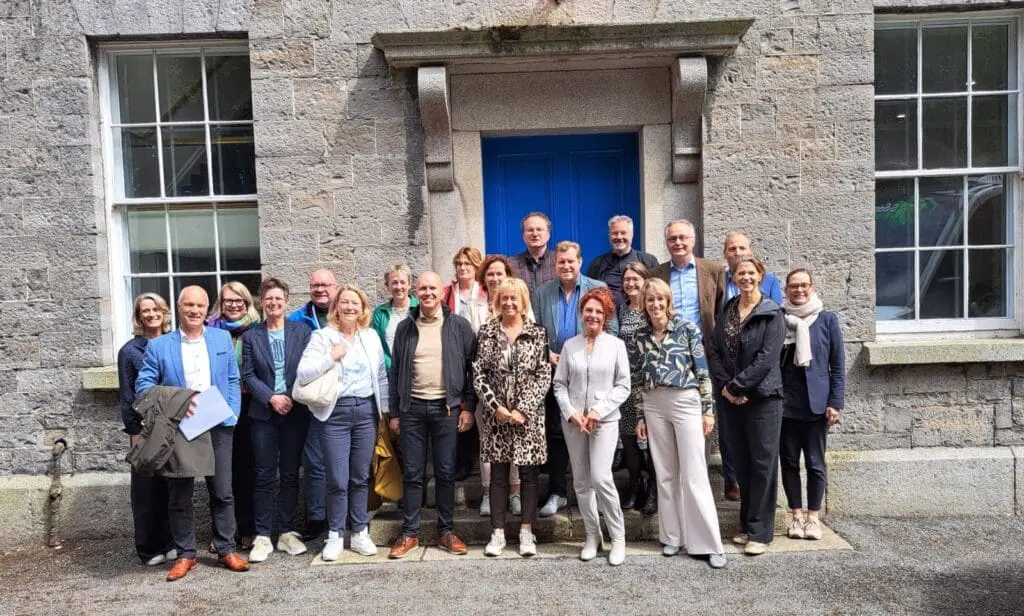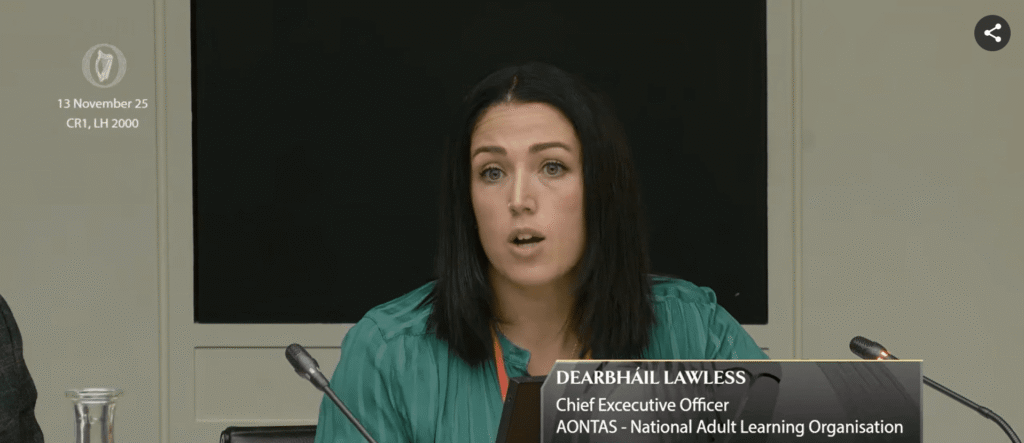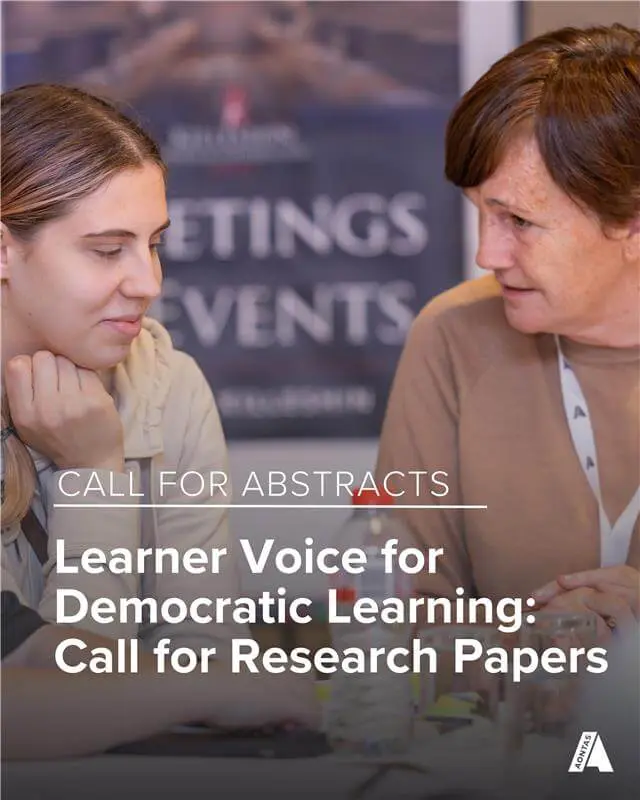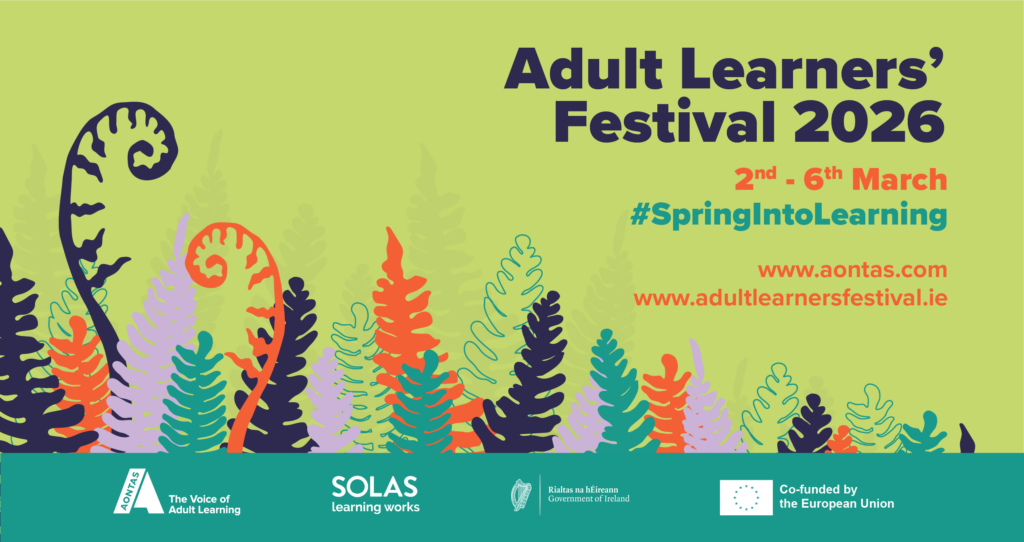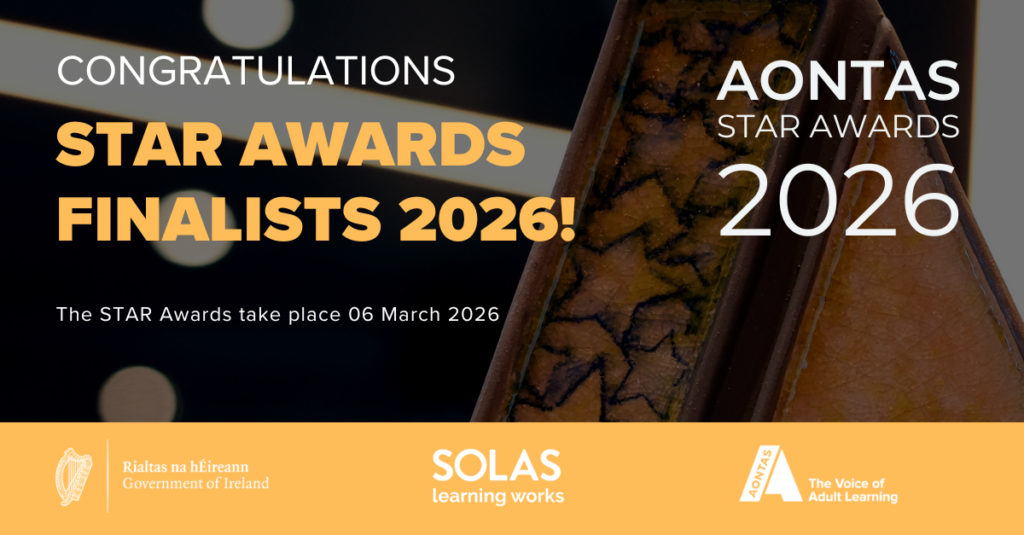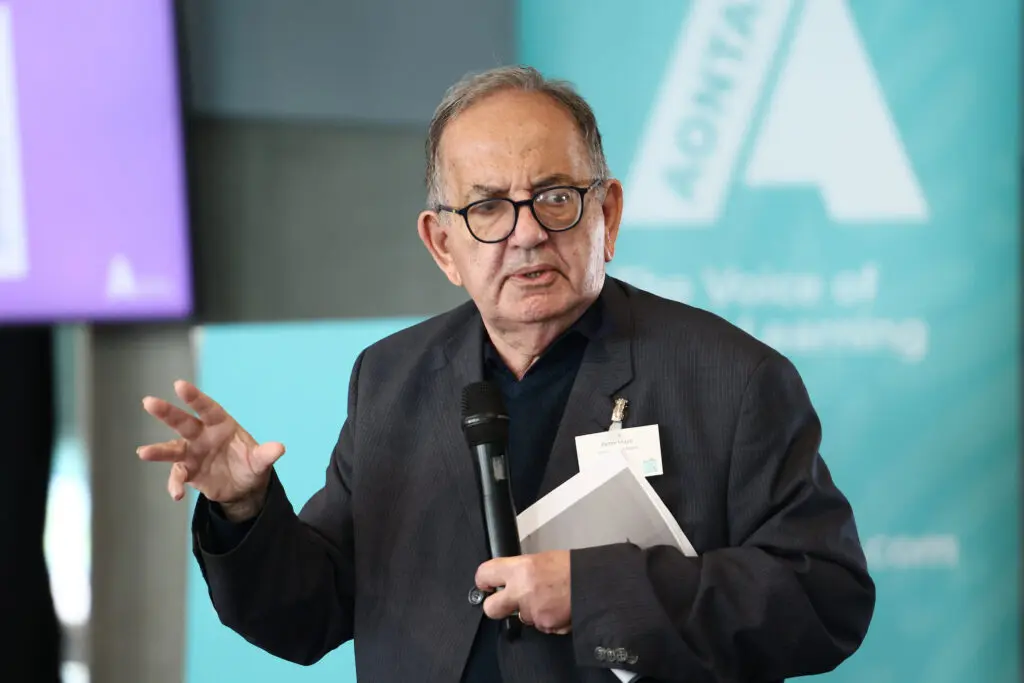“It’s all about curiosity,” Christine says. “And there’s the social aspect of joining up and coming in with us, looking at different things and challenging your perspective and thinking.”
A real mix of people
“54% of all the participants have a postgraduate qualification,” Christine says. “We also have people who are homemakers, and we have people who are in different industries like building or transport. It doesn’t really make any difference at the end of the day in the classroom because people are all there to learn and they’re all there to do their own thing. We’ve about 2,000 older people a week coming in.”
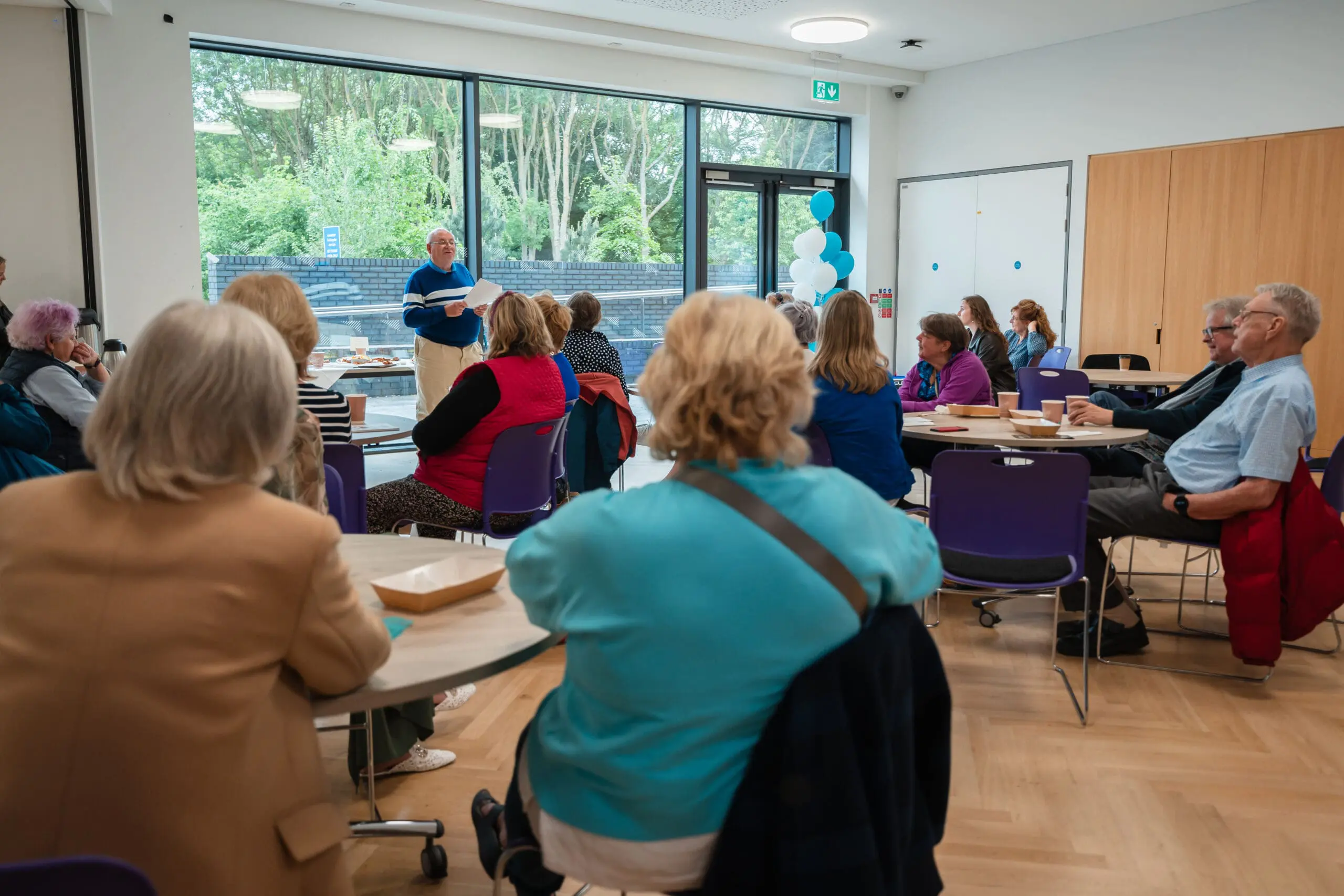 She says that by having young people and older people side by side in the classroom, students benefit from mentoring and “there’s a challenging of ageism.”
She says that by having young people and older people side by side in the classroom, students benefit from mentoring and “there’s a challenging of ageism.”
Christine says, “An older person, sometimes they say to me, I don’t really know anything about that subject, but I’d love to hear more of it. I say to them, do you think an 18-year-old knows more about this than you do? They’re here to learn. You’re here to learn. What’s the difference?”
She also points out that older people’s life experiences are different and can be of benefit to everyone in the class.
“If you’ve got Professor Gary Murphy lecturing about Charlie Haughey, how great is it to have somebody in the class who lived during the time of Charlie Haughey.
Older people were alive during the Vietnam War. They might have known people who were in the Second World War. I always say, ‘Forget about the age, just think about the person’.”
DCU has made age-friendly learning opportunities a reality. According to their website, “Despite being a ‘young’ university, seeing older people on campus at DCU is not unusual. There are many events and activities held on an ongoing basis that are open to anyone who wishes to join. We open many possibilities to allow our participants to learn new skills at their own pace.”
Recognition of ageing population
DCU undertook this approach in line with the World Health Organisation’s “age-friendly cities programme”, and a recognition that we have an aging population globally. This included having good transport systems, outdoor spaces, and access to supports, as well as social inclusion.
DCU adopted these principles of an age-friendly university, focussing on how to make courses and the campus accessible and inclusive for older people. According to Christine, “Our expectations of our retirement are different to what our parents’ and our grandparents’ were. Nobody wants to ‘retire’ now when they’re 50 or 60. They’re thinking, I can continue as long as I like, as long as I’m physically and mentally able.”
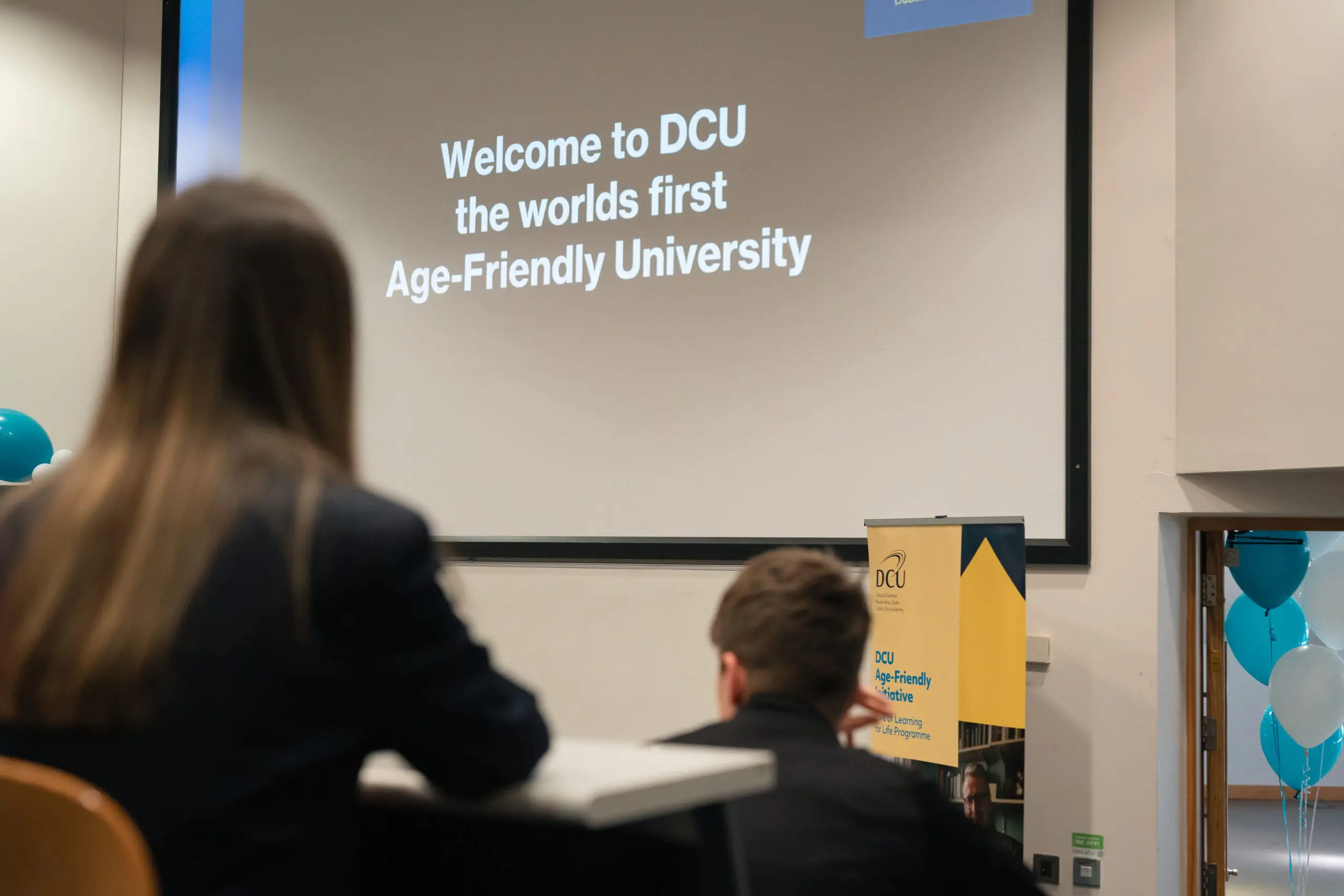 Modules include “Introduction to Fiction: Short Story and Novel”, a Philosophy module called “Justice and Peace”, a business module called “Psychology in Organisations”, or a module in Health Promotion, among many others. Christine says people can take a module without having to do exams or assignments if they don’t want to.
Modules include “Introduction to Fiction: Short Story and Novel”, a Philosophy module called “Justice and Peace”, a business module called “Psychology in Organisations”, or a module in Health Promotion, among many others. Christine says people can take a module without having to do exams or assignments if they don’t want to.
She says people are also asked to take part in the university’s research into what works when it comes to an age-friendly university.
She says, “there’s no point in designing for an older population if you don’t get their views and what it’s going to be used for. In this, we take a universal design approach.”
People are asked to give their opinion on how things should be structured and how they learn the best.
“We also think about what’s already going on in the community, you know, the institutes of Further Education, the evening classes, things like that. They’re already doing fantastic work and programmes. Any learning is good learning.”
There’s also a social and cultural side.
“Last week, we had an exhibition of the artwork,” Christine said. “In the last year, we’ve had oil painting, printmaking, botanical art, creative writing, and upcycled furniture. So, we had a huge exhibition with over 80 pieces of artwork.”
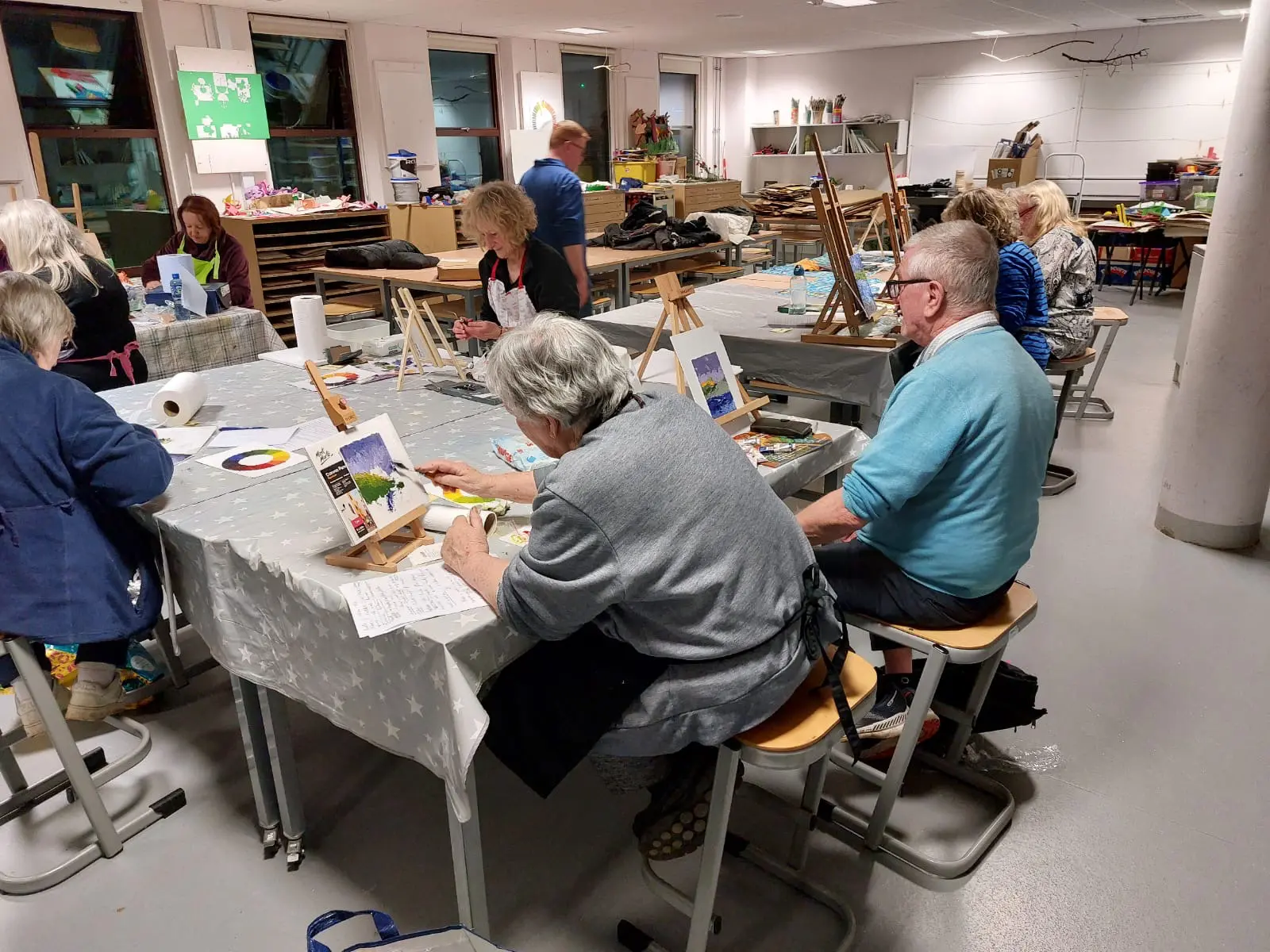 They also have a sports programme called “Active for Life”, with 800 people.
They also have a sports programme called “Active for Life”, with 800 people.
So the programme looks after people holistically – through education, research, social activities, cultural activities, and wellness.
“September is positive aging month,” Christine says. “We celebrate it for a week. Then 1st October is the UN day of older people. In March, we celebrate International Women’s Day. And in April, we have the Global Intergenerational Week. Then the Bealtáine festival in May. So each year is marked with all of these different things, and it’s a very full and fruitful programme for all sorts of things people.”
Read more about DCU’s age-friendly learning opportunities here.
